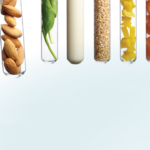
During this challenging time of forced telecommunicating, where virtual appointments have become the new standard, Zoom backgrounds are all the rage, and loungewear can secretly be worn while working from home, I’ve learned a lot about patience. However, little did I know the most valuable lessons learned would come from my patients.
The difficulties we have faced in 2020 have pushed us in ways we might not ever have imagined. Last year I travelled on 68 flights, and I was motivated to beat that number this year, educating consumers across Canada on natural health. Instead, in my twelfth year of practicing medicine, 2020 became the year of technology. I embraced it in every aspect of my life, including the naturopathic medical care I provide to my patients. Giving up educating and the joy of travelling a lecture circuit to seeing my patients on a computer monitor created a whole host of new issues for me. Along with sitting, eye strain, and the technology headaches that come with virtual appointments, there was no human interaction, the connection I realized I loved most. I was not feeling fulfilled, and I could tell my patients were feeling the disconnect too. As my patients and I began to explore more about what was happening, it came down to taking the time for much-needed self-care. I started to build self-care strategies into my life and into my patients’ protocols, and on follow-up appointments, I began to see the spark coming back.
Self-care strategies
Self-care strategies include lifestyle changes, implementing a healthy diet, getting regular exercise, and managing stress. A recent survey conducted by The Harris Poll® on behalf of Samueli Integrative Health Programs found that close to one-third of adults polled said they lacked energy, had issues sleeping, and were exercising less. Many were feeling socially isolated and wished they had more guidance and support to assist them in practising self-care. A whopping 80% said they would be more mindful about practising self-care regularly in the future, and I saw similar numbers reflected in my patients.
As we all adjust to a new normal, self-care strategies need to be embraced and prioritized. In this unique and unprecedented time, I took the cues from my patients and became more motivated to find balance. I built an in-house gym, started growing more vegetables from seed, and adopted a Sirtfood-focused meal plan (because it involves only a handful of ingredients, making it simple to get in and out of a grocery store). I also began to monitor my sleep, took scheduled breaks to go outside, and regularly checked in with my energy levels. I didn’t get to a lot of things I wanted, like making sourdough, or learning a new language, but I didn’t berate myself. Instead, I learned from my patients and became more composed – the greatest gift I never expected to find in a crisis.
Tips for Foundational Health
When focusing on self-care and implementing natural health products, the first thing to evaluate is core health. You cannot build a house without a strong foundation, and you can’t expect to combat stress, sleep soundly, or beat sadness without all the basics covered.
5 ingredients to support a
healthy foundation for core health
1. Vitamin D
Especially for those living in the north, this vital vitamin is often at suboptimal levels. Vitamin D is crucial to support immune health, mood, and bone health.
2. Probiotics
Our body’s gut microbiome can become compromised from antibiotic use, lack of fiber in the diet, and constant stress. A broad-spectrum probiotic supplement containing human-strain bacteria can help re-seed our gut and maintain a healthy relationship with the community that outnumbers our cells by a factor of ten!
3. Omega-3 fatty acids
I recommend not eating excessive amounts of fish due to heavy metal accumulation concerns, and instead recommend taking an omega-3 supplement from an iFOS™ certified fish oil. For those avoiding fish products, an algae-based EPA and DHA is a great alternative. In addition to being anti-inflammatory and supportive for brain and cardiovascular health, omega-3 fatty acids are essential in supporting the eyes, whether or not you feel the strain while spending hours in front of a screen.
4. Multivitamins
My go-to is a whole food multivitamin formula containing vitamins and minerals in their active forms, complete with phytonutrients, to provide even more goodness, as nature intended. Whole food vitamins ensure better assimilation, absorption, and utilization of the nutrients to help raise the bar and promote a healthy and well-fed body.
5. Water
Water is an essential ingredient, and something I find many of us do not get enough of daily. As a general guideline, calculate your body weight in pounds, divide by two, and drink that many ounces of water each day.












